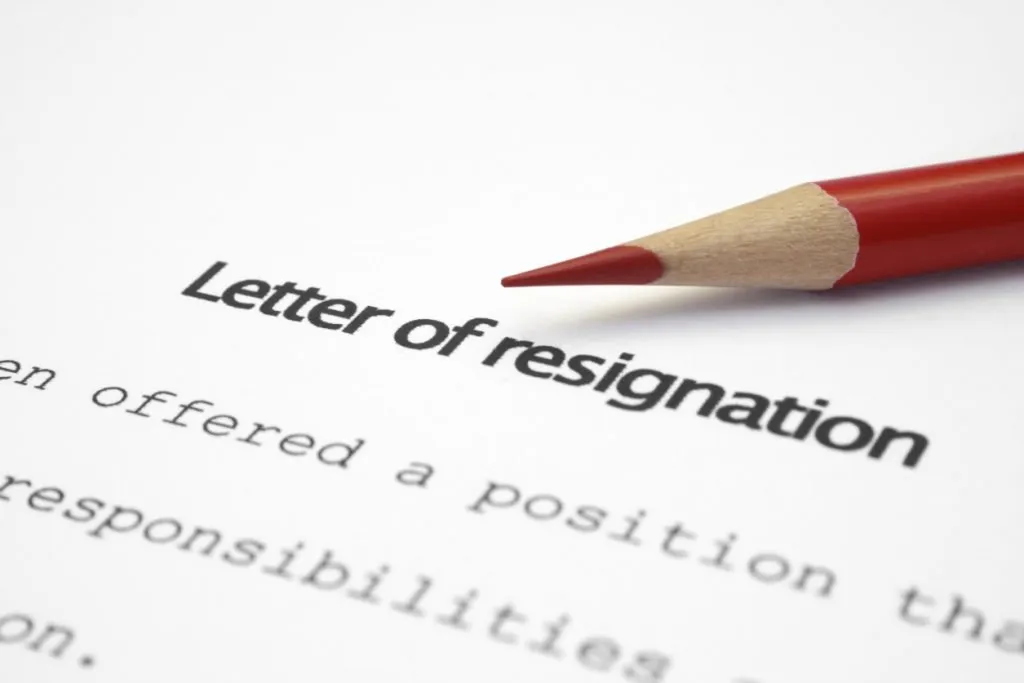Writing a resignation letter demonstrates professionalism and courtesy towards your employer. It is a formal way to communicate your intention to leave the organization and allows for a smooth transition. The letters serve as a written record of your resignation. They provide proof that you officially resigned from your position, which can be important for legal and employment purposes. It helps protect your rights as an employee and provides clarity on your last working day.
Usually this include the notice period you intend to serve before leaving the organization. This allows your employer to plan for your departure and make necessary arrangements, such as finding a replacement or reallocating your workload. Resignation letter for personal reasons offers an opportunity to maintain positive professional relationships with your employer and colleagues. By expressing gratitude, highlighting positive experiences, and offering assistance during the transition, you leave on a positive note and maintain a good reputation.
In some cases, employers may conduct exit interviews to gather feedback from departing employees. Your resignation letter can serve as a reference during the exit interview, helping you provide constructive feedback and contribute to the improvement of the organization. Some employment contracts or company policies may require employees to provide a written letter. By adhering to these requirements, you ensure that you fulfill your legal and contractual obligations as an employee.
A well-written letter can serve as a reference for future employment opportunities. If you leave on good terms and maintain positive relationships, your former employer may be willing to provide a favorable reference or recommendation when you apply for new roles.
Resignation letter – 2 week notice
To write a resignation letter with a two-week notice, begin the letter with a formal salutation, such as “Dear [Supervisor’s Name],” or “To whom it may concern.” Clearly state your intention to resign from your position. Use a direct and concise sentence to convey that you are resigning and provide the effective date of your resignation. For example, “I am writing to inform you of my decision to resign from my position as [Your Job Title] at [Company Name], effective [Date of Resignation], providing the standard two weeks’ notice.”
Express your gratitude for the opportunities and experiences you have had while working at the company. Acknowledge any skills or knowledge you have gained, and mention positive aspects of your employment. This helps maintain a positive tone and leaves a good impression. For example, “I am grateful for the opportunities I have had to grow professionally and personally during my time at [Company Name].”
What includes 2 week notice letter
Offer your assistance in making the transition as smooth as possible. This can include training your replacement, documenting your work processes, or providing any necessary handover information. Show willingness to help during the transition period. For example, “I am committed to ensuring a seamless transition and I am available to assist in training my replacement or providing any necessary information to facilitate a smooth handover.” Include your contact information, such as your phone number and personal email address, so your employer can easily reach you if needed.
End the letter with a professional closing, such as “Sincerely,” or “Best regards.” Sign your name below the closing. Below your signature, print your full name for clarity. Print the resignation letter and deliver it in person to your supervisor or the appropriate individual in your company’s human resources department. If necessary, you can also send a copy via email, following up with a printed copy for your records. Remember to keep a copy of the resignation letter for your own records as proof of your notice and resignation.
Staff nurse resignation letter sample
A staff nurse resignation letter is important for maintaining professionalism, documenting your resignation, ensuring a smooth transition, and leaving on good terms with your employer and colleagues. Submitting a resignation letter for health reasons demonstrates professionalism and respect towards your employer and colleagues. It is a formal way to communicate your decision to leave the position and ensures that the organization is aware of your intentions.
Simple resignation letter serves as written documentation of your resignation. They provide proof that you officially resigned from your staff nurse position and can be used for record-keeping purposes. Having a written record helps protect your rights as an employee and ensures clarity about your last working day. Resignation letters typically include the notice period you intend to serve before leaving the organization. This allows your employer to plan for your departure, make necessary arrangements for patient care, and potentially find a replacement for your position.
Why is important to write right nurse resignation letter
By providing a resignation letter, you give your employer time to plan for the transition and ensure continuity of patient care. It allows for an organized handover of responsibilities, training of a new staff member, and the opportunity to address any potential staffing gaps. Immediate resignation letter provide an opportunity to maintain positive professional relationships with your employer and colleagues. By expressing gratitude for the experiences and opportunities you have had, you leave on good terms and maintain a positive reputation within the healthcare community.
Some employment contracts or organizational policies may require employees to provide a written resignation letter template. By complying with these requirements, you ensure that you fulfill your legal and contractual obligations as an employee. A well-crafted resignation letter can help maintain a positive relationship with your employer, which may be important for future references. By leaving on good terms and expressing appreciation, you increase the likelihood of receiving positive references when you apply for new positions.
Writing a resignation letter allows you to reflect on your professional growth and express gratitude for the learning opportunities and support you received during your time as a staff nurse. It can be a positive exercise in recognizing the value of your experience and the contributions you made to patient care.
